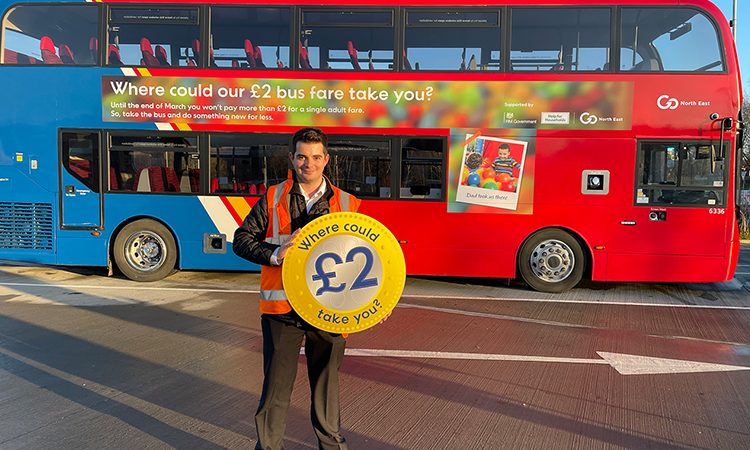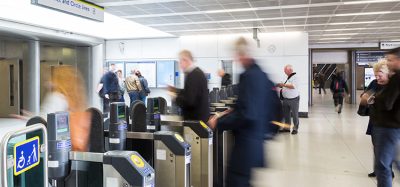UK government allocates £500 million for affordable bus services
- Like
- Digg
- Del
- Tumblr
- VKontakte
- Buffer
- Love This
- Odnoklassniki
- Meneame
- Blogger
- Amazon
- Yahoo Mail
- Gmail
- AOL
- Newsvine
- HackerNews
- Evernote
- MySpace
- Mail.ru
- Viadeo
- Line
- Comments
- Yummly
- SMS
- Viber
- Telegram
- Subscribe
- Skype
- Facebook Messenger
- Kakao
- LiveJournal
- Yammer
- Edgar
- Fintel
- Mix
- Instapaper
- Copy Link
Posted: 17 May 2023 | Intelligent Transport | No comments yet
The UK government’s allocation of £500 million aims to support people across England with living costs, foster long-term stability in the bus sector and ensure reliable transportation options.


Credit: Go-Ahead
The UK government has announced that it has allocated £500 million in funding to support affordable bus fares and improved services for millions of passengers in England. Transport Secretary Mark Harper has confirmed that £300 million will be used to protect vital routes and enhance services until 2025, ensuring reliable transportation for work, education, healthcare and shopping.
To alleviate living costs and help individuals save on daily travel expenses, the government will provide up to £200 million to extend the cap on single bus fares at £2 outside London until October 2023, and then at £2.50 until November 2024. This measure will be reviewed for effectiveness and future considerations. The fare cap aims to relieve financial pressures, offering long-term certainty for bus users, particularly those with lower incomes who heavily rely on buses.
This initiative is part of the government’s Help for Households campaign, supporting individuals facing rising living costs. It will particularly benefit those with lower incomes, reducing their travel expenses. In additional, it aims to encourage people to return to using buses, reducing congestion and emissions.
Although bus usage dropped to as low as 10% during the pandemic, it has now recovered to around 85-90% of pre-pandemic levels. The fare cap seeks to attract more passengers. Originally a temporary measure, the £2 fare cap has been extended for the second time due to its positive impact on travel affordability. Since its introduction on 1 January 2023, the scheme has allowed operators like Go-Ahead to carry over 16 million passengers at the capped rate, saving them an average of one-third on fares.
The additional funding will be shared between local transport authorities and bus operators to safeguard and enhance routes across England, ensuring the long-term financial stability of the bus sector. The funding models will protect vulnerable routes while providing flexibility to local authorities and operators in determining suitable routes.
This funding builds upon the government’s existing support, which has surpassed £2 billion over the past three years, aiding the sector’s recovery from the pandemic. Over £1 billion has been allocated to support local authorities in implementing their long-term plans to improve bus services.
Scottish government announces £58 million funding boost for zero-emission buses
Out of the £300 million designated for supporting services until 2025, £160 million will enhance fares, services, and infrastructure through local transport authorities, while £140 million will directly assist operators in preserving essential services across England.
While bus operators and local transport authorities are responsible for ensuring adequate bus routes, the UK government continues to collaborate closely with the sector to manage changing travel patterns and address financial pressures.
In addition, eight mayoral combined authorities in England will receive a £5.7 billion investment over the next five years through the City Region Sustainable Transport Settlement (CRSTS) to support integrated, cross-modal transport networks, including bus infrastructure.
Prime Minister Rishi Sunak said: “By extending the £2 fare cap, we’re making sure bus travel remains accessible and affordable for everyone while helping to ease cost of living pressures. Buses connect our communities and play a vital role in growing the economy; they transport people to work, take our kids to school and make sure patients can get to doctors’ appointments. That’s why we’re determined to protect local routes and encourage more people onto the bus, ensuring people can get around easily and in an affordable way.”
Transport Secretary Mark Harper said: “Taking the bus is the most popular form of public transport and millions of people rely on these vital services every day. That’s why we’re investing half a billion pounds to help people save money amid cost of living pressures and continue to level up transport in all parts of the country, doing our bit to help halve inflation and grow the economy.”
Rebecca Fuller, Interim Director at the Urban Transport Group, said: “The government’s decision to extend bus funding to 2025 offers a degree of longer-term certainty and brings to an end the stop-start approach that has dominated government support for the bus since the pandemic. However, we are yet to learn the crucial details around how local transport authority funding will be shared across the country and the extent to which this will depend on past allocations, such as Bus Service Improvement Plan (BSIP) funding. It seems likely that there will be winners and losers from this announcement and we are keen to ensure that our urban areas have the funding they need to not only safeguard, but to also transform bus services as envisaged in the National Bus Strategy.”
Related topics
Accessibility, Passenger Experience, Public Transport, Ticketing & Payments
Related modes
Bus & Coach
Related countries
United Kingdom
Related organisations
Go-Ahead, The Urban Transport Group (UTG), UK Government
Related people
Mark Harper, Rishi Sunak








